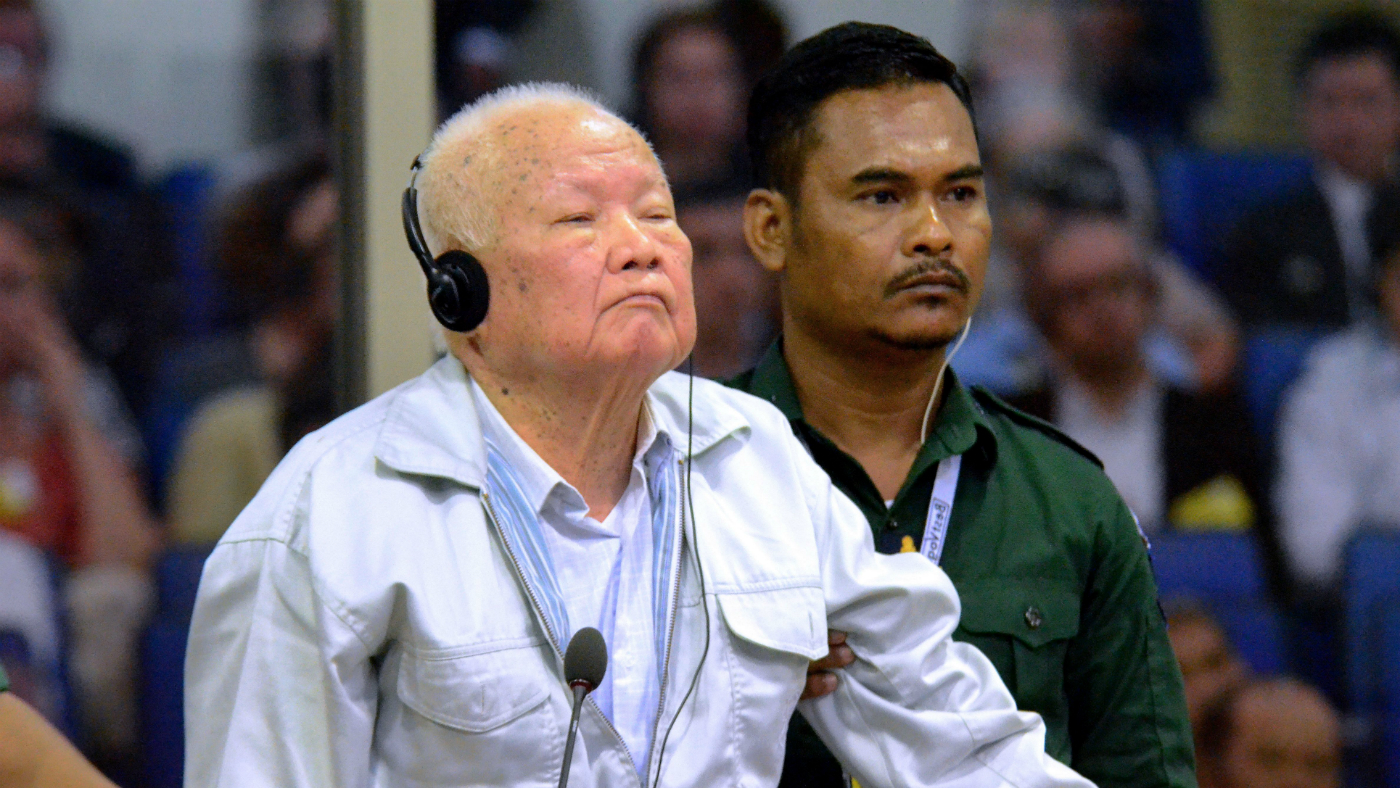Cambodia: Khmer Rouge leaders found guilty of 1970s genocide
Nuon Chea, 92, and Khieu Samphan, 87, get life sentences for role in killing of up to 30% of Cambodian population

A free daily email with the biggest news stories of the day – and the best features from TheWeek.com
You are now subscribed
Your newsletter sign-up was successful
Two leaders of Cambodia’s brutal Khmer Rouge regime were today found guilty of genocide, in a case that has been compared to the post-WWII Nuremberg Trials.
Nuon Chea, 92, was the deputy of regime leader Pol Pot, and Khieu Samphan, 87, was head of state. Today, the pair were sentenced to life in prison, following a trial at a UN-backed tribunal over their part in the government-sanctioned extermination of millions of Vietnamese and Cham minority peoples in Cambodia in the 1970s.
The two former commanders were already serving separate life sentences following earlier convictions for crimes against humanity.
The Week
Escape your echo chamber. Get the facts behind the news, plus analysis from multiple perspectives.

Sign up for The Week's Free Newsletters
From our morning news briefing to a weekly Good News Newsletter, get the best of The Week delivered directly to your inbox.
From our morning news briefing to a weekly Good News Newsletter, get the best of The Week delivered directly to your inbox.
The guilty verdict has been called a “landmark” ruling, as the first official acknowledgement that at least some of the many civilians who died at the hands of the Khmer Rouge between 1975 and 1979 were victims of an orchestrated genocide, says US-based news site NPR.
The tribunal found that the regime perpetrated murder, extermination, deportation, enslavement, imprisonment, torture, persecution on political, religious and racial grounds, attacks on human dignity, enforced disappearances, forced transfers, forced marriages and rape.
The UN secretary general’s special expert on assistance to the Khmer Rouge trials, David Scheffer, told The Guardian that the verdict was “very significant”, and “comparable, in Cambodia, to the Nuremberg judgment after World War Two”.
Prosecutor Nicholas Koumjian said the ruling was “very timely and very necessary”, adding: “The fact that these crimes happened 40 years ago in no way diminishes the impact of this verdict for those who were affected by the crimes, people whose parents were tortured and killed.”
A free daily email with the biggest news stories of the day – and the best features from TheWeek.com
The Khmer Rouge regime sought to achieve an “agrarian utopia” by depopulating cities and establishing collective farming communes, explains The Independent.
Many initially died through what has been called “auto-genocide”, in which people succumbed to starvation, overwork and execution.
But the government quickly instigated systematic mass murder at sites around the country known as “Killing Fields”. Educated people were seen as a threat to the regime, so government executioners targeted supposed “intellectuals”, which could include people who wore glasses or spoke a second language, the BBC reports.
The New York Times says that “most of those murdered had their heads bashed in with a hoe to save bullets”, as the government was extremely poor and could not afford ammunition. Victims were also stabbed with bamboo spears, poisoned or hacked to death with machetes.
Former prison commander Kaing Guek Eav - who admitted to killing thousands at the Tuol Sleng political prison in the Cambodian capital of Phnom Penh - has told how babies whose parents had been killed were battered to death against trees, to avoid the risk of them ever seeking revenge, the Daily Mail reports.
The total death toll in Cambodia under the Khmer Rouge regime is difficult to calculate, but estimates suggest up to 2.8 million people may have died -around 30% of the country’s population at that time.